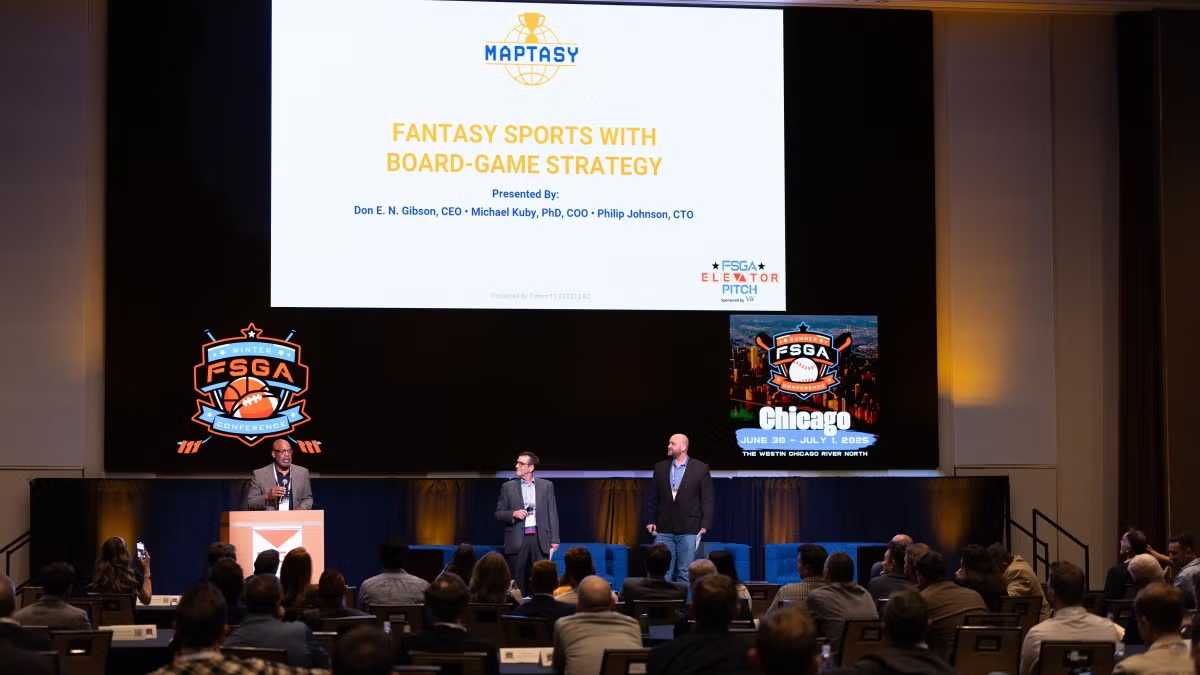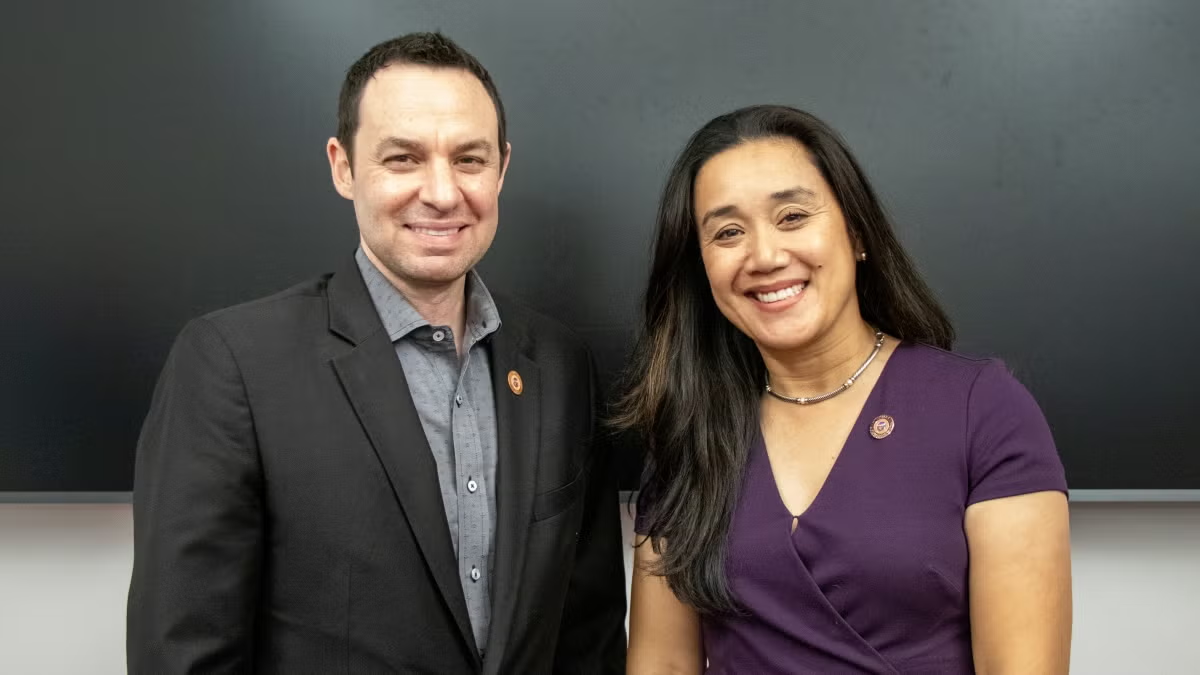Stripping away an aging person’s power near the end of his or her life is informed by medicine but is fundamentally a social, moral and legal determination, said ASU Law Professor Betsy Grey.
“We’re balancing between two strong ethical principles, that is, autonomy and protection,” said Grey, the Jack E. Brown Professor of Law at the Sandra Day O’Connor College of Law who specializes in the impact of advancements in neuroscience on tort law.
“Generally, the law waits for some outward behavioral manifestation before it acts, but researchers are beginning to discover preclinical signs of dementia," Grey said. "The law will need to figure out whether and how to take that into account. ”
Grey’s comments were among a range of topics on the brain and the law covered in a biennial conference held at the Sandra Day O’Connor U.S. Courthouse in downtown Phoenix on Friday, Dec. 8.
“The Aging Brain: Medical, Legal and Ethical Perspectives” was hosted by the Center for Law, Science and Innovation at ASU Law, and it drew about 100 people. The goal of the conference was to bring together legal, medical and academic experts to have a dialogue about scientific developments in aging and dementia, as well as other topics regarding end-of-life issues.
“ASU Law was among the first to really recognize the impact that rapid advances in science and technology would have on law, and to embrace the issues at the intersection of law and technology as a critical part of a comprehensive legal education,” said ASU Law Dean Douglas Sylvester. “With the critical support and involvement from Judge Roslyn O. Silver, we have partnered with the U.S. District Court to host these biennial conferences since 2005, covering topics from criminal culpability, to adolescent addiction, to concussive injuries and CTE, and now Alzheimer’s and dementia.”
Grey’s comments were mostly derived from a panel titled, “Competency and Incapacity: Assessment and Consent.” Panel members also included James Polk, a probate judge with the Superior Court of Arizona for Maricopa County; Katherine Pearson, Dickinson School of Law, Pennsylvania State University; and Elizabeth Leonard, Neurocognitive Associates.
The panel reviewed the many ways in which the courts and medical, legal and clinical experts determine capacity in decision making when it comes to functional independence. This determination includes mental impairment, developmental physical abilities, drug and alcohol abuse, mental illness and particularly Alzheimer’s and other forms of dementia.
It’s an issue the courts will see more of in the next two decades as America rapidly ages. According to the U.S. Census Bureau, by 2033 people over the age of 65 will outnumber those under the age of 18.
In addition to the various methods courts use to measure a person’s competency, Grey believes the identification and validation of biomarkers for diagnosing Alzheimer’s disease and other forms of dementia will play an increasingly important role in future court decisions.
“As biomarkers become validated, they’ll become part of the medical standard of care for individual diagnosis,” Grey said. “Neurologists are already beginning to use imaging for diagnostic purposes when individuals display cognitive decline. Eventually, use of these biomarkers will result in more consistent and reliable and accurate outcomes. Biomarkers will help give us a baseline for when cognitive decline begins.”
She added that courts need to be cautious when integrating the science into the legal system because of biases, uncertainties and privacy concerns.
Grey said her opinions are based on Alzheimer’s research such as that of Richard Caselli of the Mayo Clinic and Jessica Langbaum of the Banner Alzheimer’s Institute, who presented their findings in a prior panel, “Scientific Developments in Aging and Dementia: Pre-Symptomatic Screening for Neurodegenerative Diseases.”
Caselli has been conducting research since 1994, studying and testing patients’ cognitive skills, which includes genetic and glucose PET testing and MRI atrophy measures, to see how their brains changed over time.
“We have now followed enough people for mild cognitive impairment and dementia to know enough about them to know when they started to diverge on these tests from the people who didn’t,” Caselli said.
He said there are different types of biomarkers for Alzheimer’s, but they are not 100 percent specific.
“The problem is there are plenty of people out there who might not show symptoms of Alzheimer’s, but still have a positive scan,” Caselli said. He added that courts could start incorporating biomarker tests into their decision-making process in as soon as five to 10 years, but it depends how they are used and what stage a person is showing.
“We’re on a cusp,” Caselli said.
Top photo: ASU Law Professor Betsy Grey addresses the audience during a session focusing on the difference between competency and incapacity at the Sandra Day O'Connor U.S. Courthouse in Phoenix on Dec. 8. The panel was part of a larger conference on "The Aging Brain: Medical, Legal and Ethical Perspectives" hosted by the ASU Center for Law, Science and Innovation. Photo by Deanna Dent/ASU Now
More Law, journalism and politics

A new twist on fantasy sports brought on by ASU ties
A new fantasy sports gaming app is taking traditional fantasy sports and mixing them with a strategic, territory-based twist.Maptasy Sports started as a passion project for Arizona State University…

'Politics Beyond the Aisle' series to explore the stories of public officials
In an effort to build a stronger connection between students and political and civic leaders, Arizona State University’s School of Politics and Global Studies hosted the first event of its new series…

ASU committed to advancing free speech
A core pillar of democracy and our concept as a nation has always been freedom — that includes freedom of speech. But what does that really mean?Higher education doesn’t have an agenda to curate a…
